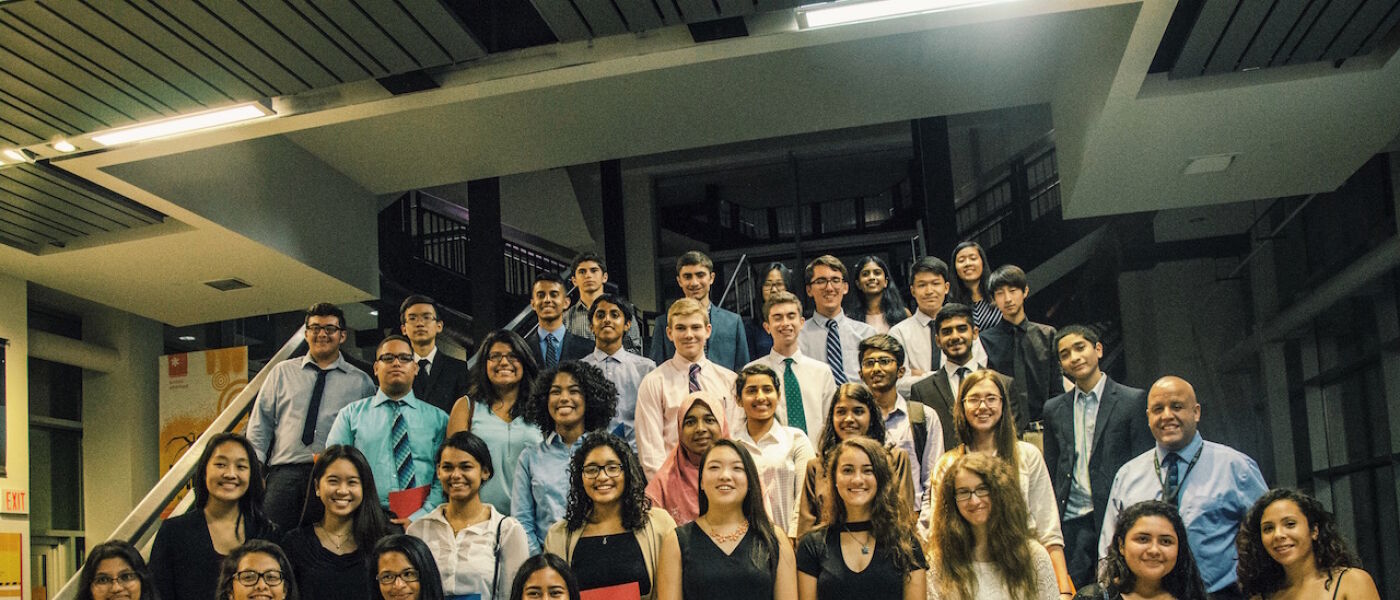Liberty Science Center celebrates 30 years of Partners in Science
For many high school students, spending the entire summer in a research lab might not sound very appealing. But not everyone has the motivation and drive for learning as the 37 students in Liberty Science Center’s competitive Partners in Science program.
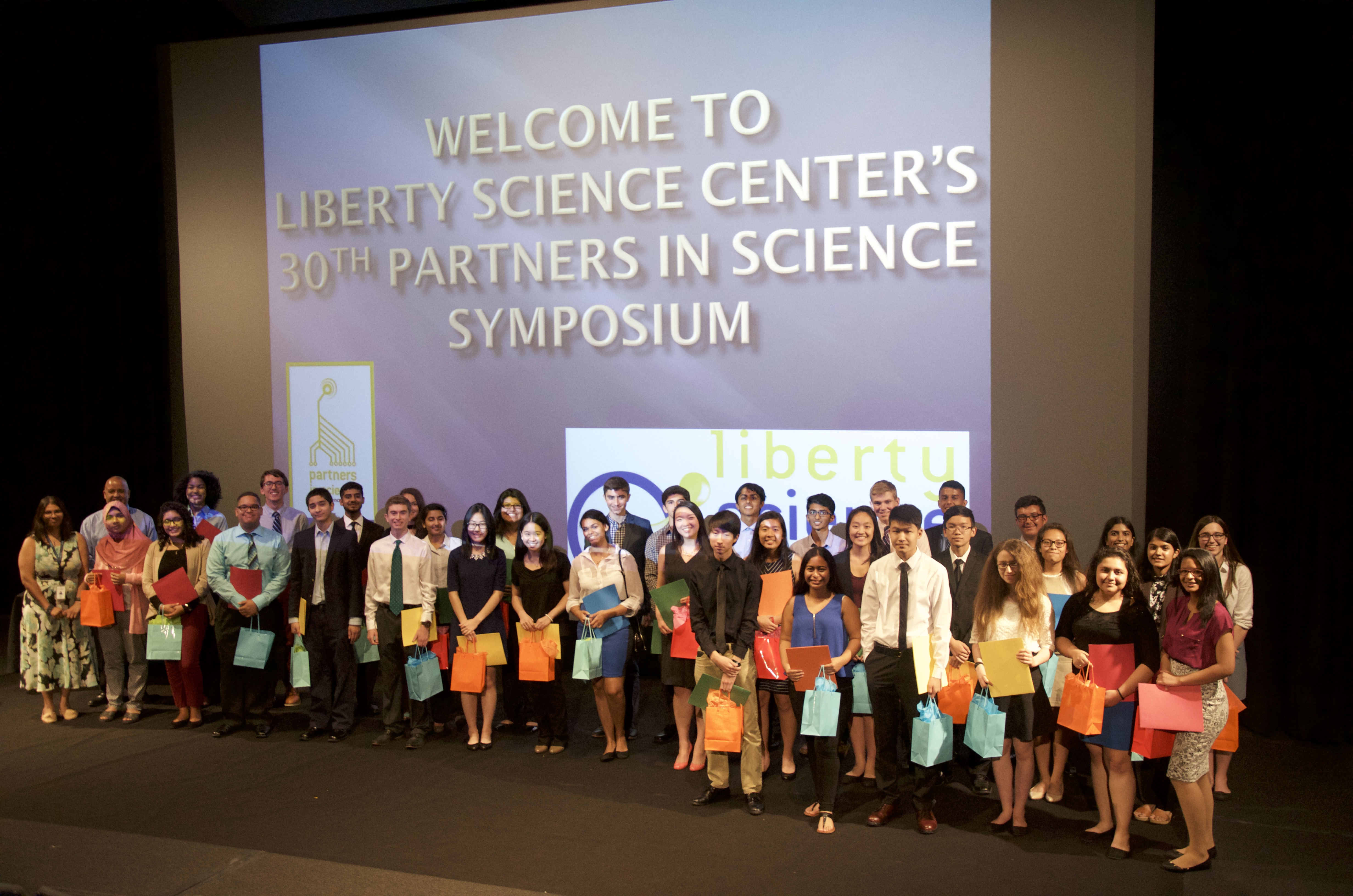
All summer, these high school juniors and seniors were placed with professional mentors in science, health and technical fields at nine different universities and research institutes. For 40 hours a week – essentially a full-time job – the students participated in ongoing research and independent projects, which they each presented to a packed auditorium on August 25 at LSC.
This was the program’s 30th year, and over three decades, approximately 90 percent of participants have gone on to pursue STEM-related careers. But despite being older than the LSC building itself, Partners in Science continues to expand in exciting new ways.
“It’s been terrific to see a greater variety of students and more diverse types of research being presented,” said Ruben Rosario, director of STEM enrichment at LSC. “In the past, it used to be mostly medical research. But now we’re seeing more research that’s focused on technology and electronics.”
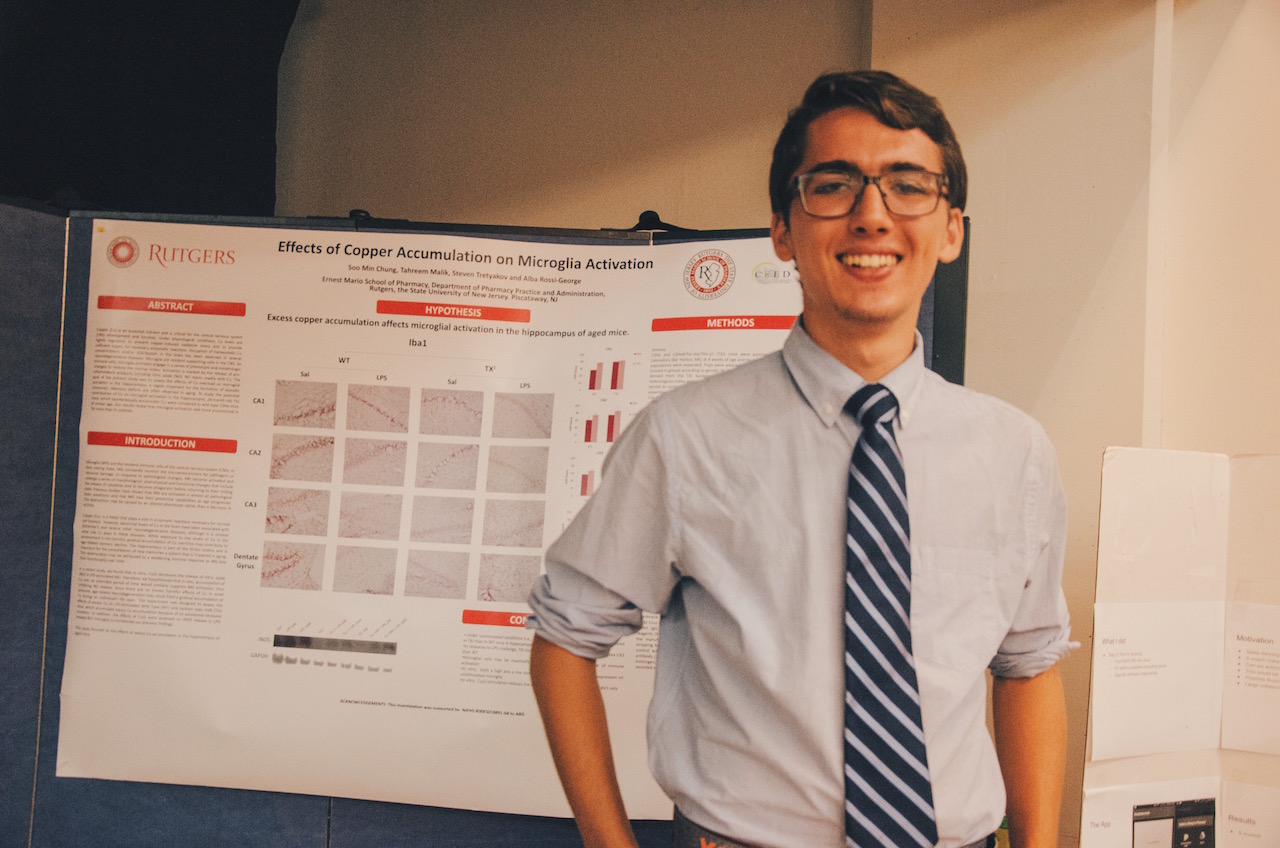
Alexander Frolov
Avi Cooper and Poojit Hedge, students at Torah Academy of Bergen County in Teaneck and Middlesex County Academy in Edison, respectively, teamed up to create an indoor GPS made through cameras and computer vision.
The students conducted their research at Rutgers University’s Wireless Information Network Laboratory with Dr. Ivan Seskar.
“This is my second year doing Partners of Science,” Cooper said. “The main reason I came back was being able to work in a lab. They have so many resources you can use. It’s basically impossible to do this on your own.”
“I find the opportunity to conduct research at such a young age, as a high schooler, very unique and something that I wouldn’t have found in many other places,” said Hedge.

Soowan Jeong
But technology wasn’t the only focus of these projects. Karen Castro, a senior at the Academy of Enrichment and Advancement in Union City, researched chemical, biological and pharmaceutical engineering with Dr. Roman Voronov at NJIT.
“When you’re in school, you learn the basics of science. You learn what cells are. You learn about chemistry,” Castro said. “But you don’t really go in-depth and you don’t really have the hands-on experience, and that’s what I find valuable: hands-on experience.
“That’s why I decided to go into Partners in Science,” she said. “I’ve gotten so much experience. Now I know how to work with instruments that we don’t get to work with in our school.”
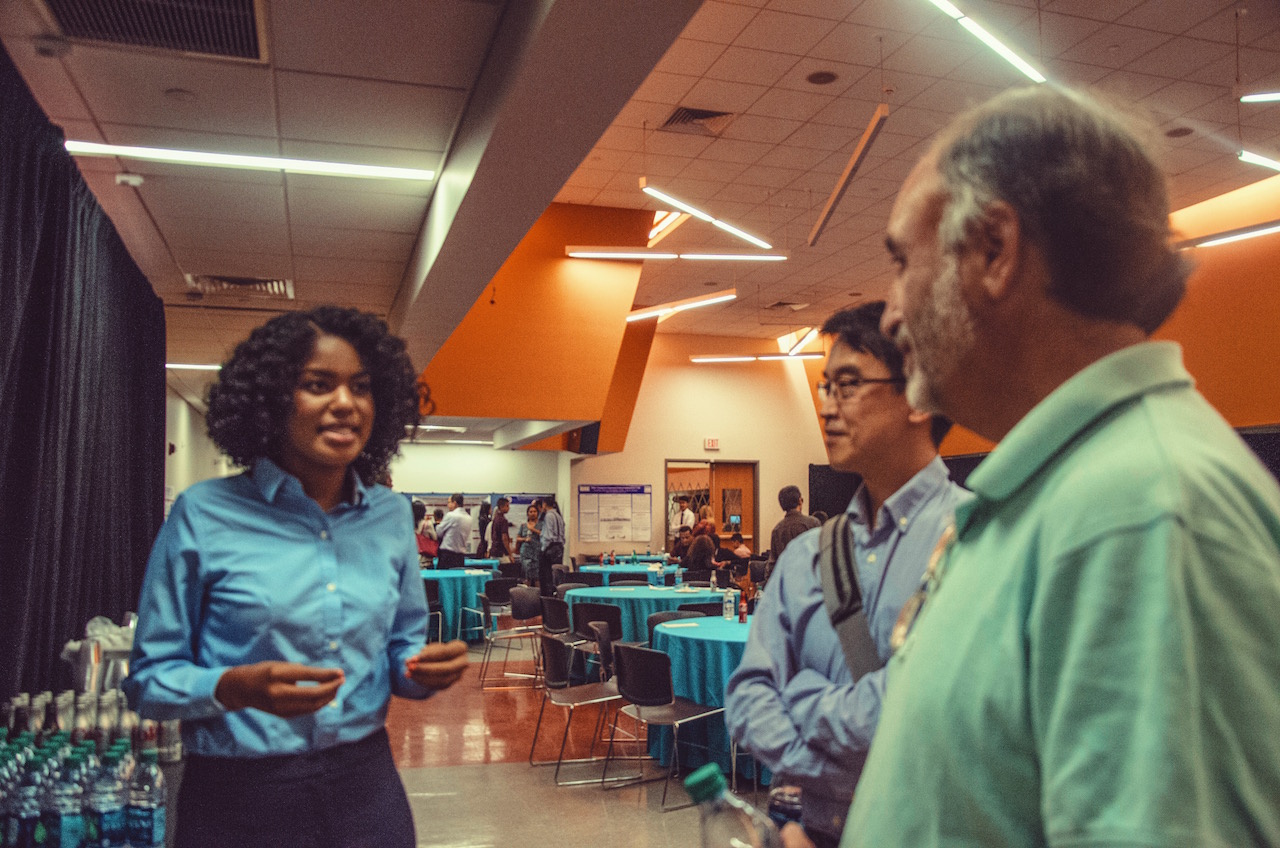
Giselle Peña
In addition to hands-on experience, the students acknowledged another benefit to the program: getting comfortable with presenting research to large crowds.
“You can have the cure to cancer, but if you can’t present it the right way, no one’s going to listen to you,” said Giselle Peña, also a student at the Academy of Enrichment and Advancement. “I feel that in the STEM career, it’s also important to establish public speaking skills.”
This was Peña’s second summer in the program. She researched synthesis of an organic semiconductor with Dr. Kenneth Yamaguchi at New Jersey City University (NJCU), and said being in Partners in Science inspired her to pursue a career in civil engineering construction management.
“I know there’s a lack of girls in that field, nevertheless Hispanic girls, but I’m very interested and very driven,” she said.
Thanks to her hard work in the program, Peña said she was able to receive a full ride to NJCU.
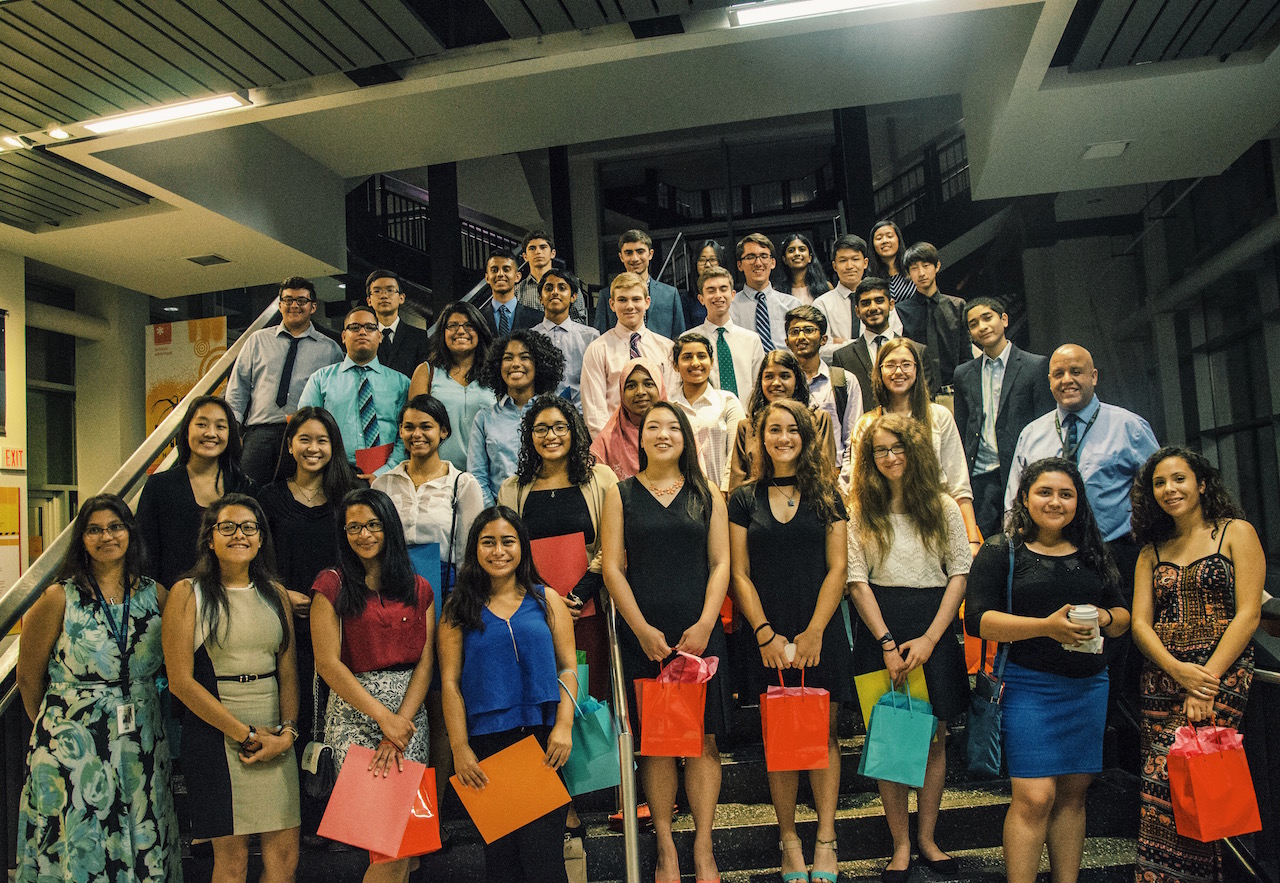
For some students, the best part of the program was discovering what career they wanted.
Michael Makar, a student at Freehold High School, developed a video game to raise awareness of cyber security along with his partner Yanaisey Rivera of the Academy of Enrichment and Advancement. Before the summer, he had no experience in game design, but realized it was a field he wanted to pursue professionally.
“This program helped me realize that there are so many areas of science to investigate,” Makar said. “Sure, you might say you like science, but there’s hundreds and hundreds of fields. Partners in Science really took things a step further for me and peaked my interest in ways that I’ll carry with me the rest of my life.”
The Partners in Science program is supported by Johnson & Johnson Family of Companies, NASA New Jersey Space Grant Consortium and Northeastern Chemical Association. To learn more, click here.
